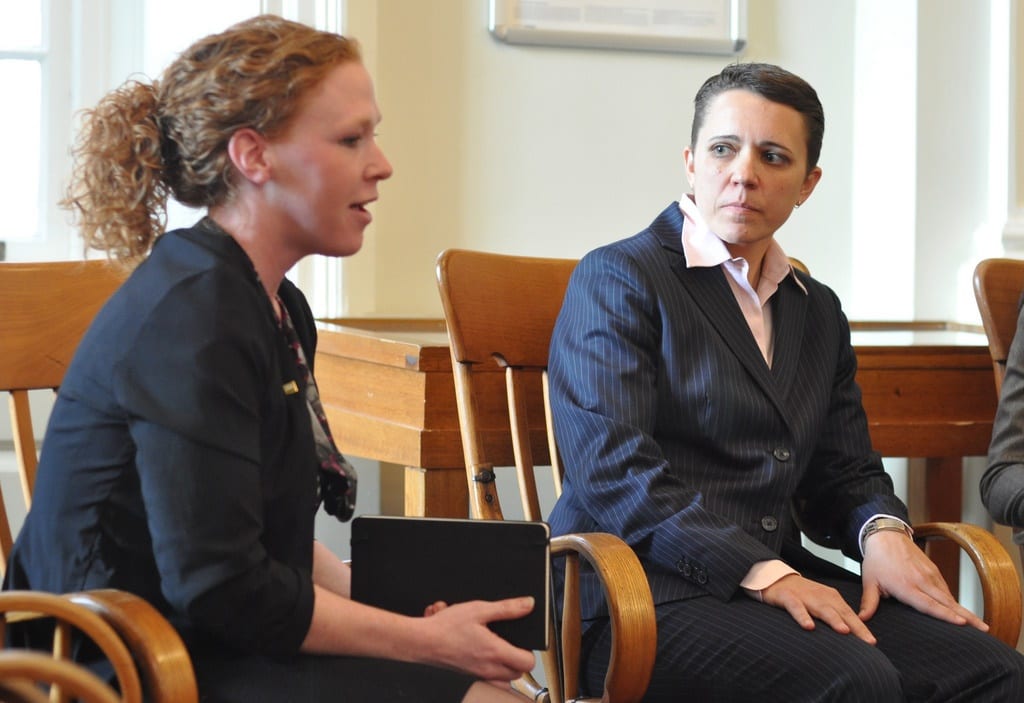
The future may hold changes for policies regarding psychedelic therapy. Image Source: Flickr CC user Bill Smith
This month may prove to be a big one for psychedelics. Beyond it being a groundbreaking year for cannabis at the voting polls, the Multidisciplinary Association for Psychedelic Studies (MAPS) will meet with the FDA at the end of the month to design the third and final round of trials to test the use of MDMA-assisted psychotherapy for PTSD. While the results of the first two rounds have been promising, the cumulative results of these three trials will be the biggest deciding factor in whether the FDA opens the door to the possibility of a future with legal MDMA-assisted psychotherapy.
As more research shows psychedelics’ healing potential, a future with legal psychedelic therapy isn’t a pipe dream. MAPS proposes that, with its pioneering PTSD research, MDMA-assisted psychotherapy could be legal in as few as five years. Thanks to research funded in large part by the Heffter Research Institute, it looks like psilocybin could follow suit. But what exactly would that look like?
While U.S. policy advocates are still debating this question, a group of researchers in Canada recently tackled the topic head on. MAPS Canada leader Mark Haden and a research team from the University of British Columbia have proposed a model of public policy for legalized psychedelic therapy that includes centralized accreditation for psychedelic guides and shamans, a new profession termed “psychedelic supervisor,” and government-regulated administration.
But perhaps most important is that the plan provides an initial framework to dissect, bringing to light some important questions about legalization—questions that include private vs. public regulation, how we acknowledge long-standing indigenous psychedelic shamanism, and how to build a network of accountable psychedelic experts.
A Framework for Psychedelic Public Health
Thanks to numerous studies over the last decade about the medicinal benefits of psychedelics, we’re starting to develop a protocol for the use of psychoactive substances. The paper from Haden and his fellow researchers references this swath of recent psychedelic research as a basis for their public health framework, including MDMA’s potential to treat PTSD, the evidence that psilocybin can reduce end-of-life anxiety and improve people’s personalities, the ability of psychedelics to treat alcoholism and addiction, and the religious and spiritual impact of psilocybin.
Using this research, Haden advocates for a future in which the administration of therapeutic psychedelics would be regulated through a governmental body termed the Psychoactive Substance Commission. This group would have authority over the production, distribution, and administration of psychedelics, plus any associated tax policies. This governing commission would also grant authority to a separate entity termed the College of Psychedelic Supervisors which, according to the proposal, would “establish, monitor, and enforce standards of practice amongst its registrants.”
Haden’s description of a psychedelic advisor will sound familiar to anyone versed in the idea of harm reduction “sitters.” Haden describes a psychedelic supervisor as “somebody that oversees a psychedelic session, and provides a context for an experience that somebody has with psychedelics. It’s somebody who manages both set and setting, set being the expectation and setting being the environment, to maximize the benefit and minimize the harm of a psychedelic.” Haden envisions a spectrum of roles coming out of the same licensed title, from a provider who would administer MDMA treatment in a clinical setting to a shaman who guides ayahuasca ceremonies.
The framework was developed with tenets of religious freedom, human rights, and cognitive liberty, and it lays out a system that aims for quality control and accountability. In this proposed system, providers of psychedelics would be certified through the centralized certifying authority and held accountable for standards of safety and patient health.
The Questions We Should Be Asking
So how does this proposal compare to talk in the US? While MAPS in the U.S. hasn’t gone so far as to propose the centralized regulation of psychedelics through the federal government, the idea of a “psychedelic supervisor” isn’t too far off from what it’s attempting to do with its MDMA therapy certification program. This proposal serves as a jumping-off point for discussion on the topic of legalization, not just in Canada—which has held a relatively more open stance on psychedelics—but around the world. Questions it raises includes those of commercialization, how we acknowledge indigenous shamanistic practices, and how to build a network of accountable psychedelic providers.
The first key to psychedelic treatment, most advocates agree, is that it requires a therapeutic context. A qualified therapist can help a patient create a positive set and setting, mitigate risks, and maximize benefits. To guarantee quality and accountability, Haden proposed creating a College of Psychedelic Supervisors and Psychoactive Substance Commission, but how would that idea translate to drug policy in America?
Right now, we only have current cannabis laws to look to as a guide, but Haden cautions against commercializing psychedelics in the same way we’ve done with marijuana. “Revenue generation would not be a primary objective,” he says, but it remains to be seen where policy advisors in the U.S. will land.
As with all things, the proposal would be trickier to enact than it looks on paper. In particular, the wide spectrum of therapeutic settings for psychedelics—from clinician’s offices to shamanic ceremonies—means setting and maintaining standards of quality will prove challenging. For instance, would a centralized governing body create standardized protocol for long-standing indigenous psychedelic practices? It seems that, to create a network of reputable providers and therapists, we would need to create some sort of protocol for psychedelic administration, but the logistics of regulating that would be even trickier than it’s proven to be for cannabis.
Ultimately, this proposal provides an important straw man. It serves as a starting point in the discussion on how psychedelics could be framed in the context of public health, and, as the proposal points out, it’s high time we talked about it. The evidence that psychedelic drugs are not harmful to health, a growing drug abuse epidemic, and the consequences of an unregulated, illegal drug market indicate we desperately need a fresh perspective on handling all illegal substances—particularly those that have shown great promise for therapeutic benefits.









